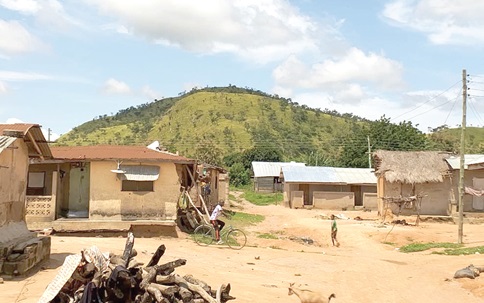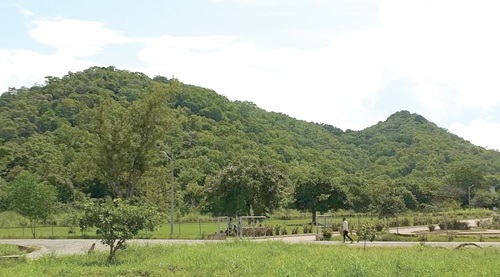
Banda Ahenkro - Ancient community blessed with mountains, hills and caves
Banda Ahenkro, the capital town of the Banda District, is one of the ancient communities in the west-northern part of the Bono Region.
Located near the border with Ivory Coast, Banda Ahenkro and its surrounding communities, such as Banda Boase, are blessed with several natural resources, including mountains and hills.
The Banda Ahenkro and Banda Boase hills, with a stretch of caves, have historical connections to the Banda people.
Folklore has it that the caves, or rock shelters, served as a shelter of safety during the Ashanti-Banda war in the 1700s.
Additionally, the caves serve as a hiding place for wildlife, such as bats, porcupines and snakes, which could serve as a tourist site if well developed.
The area is also noted for its high production of fish because it is gifted with rivers and dams, particularly the Bui Dam.
People in the area, mainly the youth, have taken advantage of the rivers to carry out fishing activities to make some income for themselves.
As an area noted for agriculture, Banda Ahenkro is one of the fastest-developing towns in the region.
Name
Banda Ahenkro’s geographical location provided a home for groups of people seeking shelter across the West Africa sub-region, during the slave trade era.

The lushness of the Banda Ahenkro mountains is not lost on a visitor to the community
The Daily Graphic gathered that the original name of the settlement was “Serminakuu”, meaning groups of “grass”.
However, the name was later changed to “Woanda”, to wit, “they did not sleep”. That, according to history, was how the present-day Banda got its name.
Narrating how the town came to be known as Banda Ahenkro, the Banda Boasehene, Wulotie Ligbi II, told the Daily Graphic that during the Ashanti and Banda war, the people of Ashanti decided to attack Banda residents at night.
He explained that the Ashanti warriors thought the Banda people would be asleep at the time of their attack.
Wulotie Ligbi, however, said when the Ashanti military arrived at Banda deep into the night, the Banda people were still awake, watching over the community and praying throughout the night.
He said the Ashanti military team said “Woanda” meaning, “they did not sleep”.
Wulotie Ligbi said later, “Woanda” was corrupted by the Bono people to become Banda.
He explained that the settlement evolved to become the chief town, meaning “Ahenkro”, within a collection of Nafana communities.
Festival
The people of Banda Ahenkro celebrate the “Fodwuor” Festival in October every year to outdoor the new yam season.
A durbar of the chiefs and people, led by the Omanhene and Omanhenemaa of the Banda Traditional Area, is always held to climax the festival.
The inhabitants, mostly Muslims, commemorate the festival to remember their ancestors and pray for protection and favour for themselves and future generations.
The festival is also celebrated to purify the area and allow the people to go into the traditional new year smoothly.
Extreme heat
A resident at Banda Ahenkro, Mohammed Yussif, claimed that the mountains surrounding the community produced extreme heat.
He said the community was unique because of its beautiful environment, explaining that the people continued to hear strange animals hiding in the caves crying, especially at midnight.
Mr Yussif said most of the sounds from the animals were not familiar to them.
A farmer at Banda Ahenkro, Bukari Naaba, told the Daily Graphic that although the area is rocky, farmers are able to make good harvests.
He said farmers in the area grow crops such as yam, cassava, maize, groundnut and cashew.
Mr Naaba said a greater part of the population in the area are farmers, with some females showing interest in trading.
